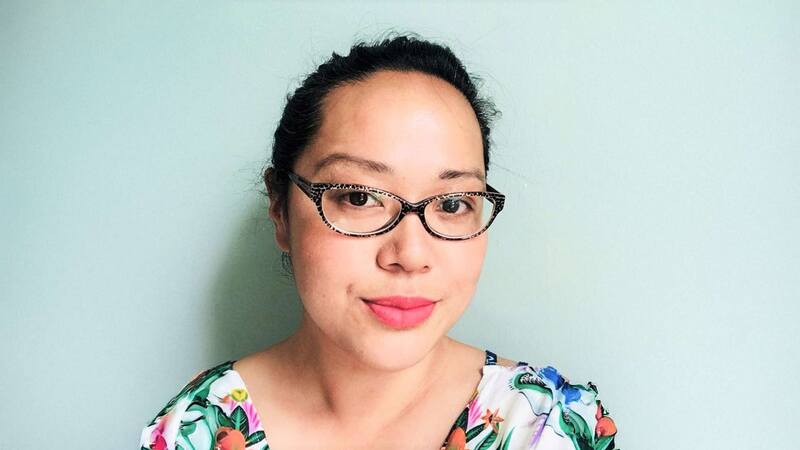You are viewing your 1 free article this month. Login to read more articles.
Spells like teen spirit
No wonder YA poetry is flourishing — it can have a powerful effect on a teenage mind.
The teenage brain is primed for connection with poetry. At this age, only 80% of the frontal lobes are connected to the limbic system, meaning "safe" decisions are not so easily made. This is the age when perspective is skewed, when teenagers forget to remember to do a thing – and spontaneity reigns. Due to its neural plasticity, the teenage brain is both more vulnerable and yet more powerful than the adult version; it is perfectly honed for learning, even as it sheds constellations of spurned neurons.
"Adolescence is a formative period of life," Sarah-Jayne Blakemore writes in her book Inventing Ourselves: The Secret Life of the Teenage Brain, "when neural pathways are malleable, and passion and creativity run high. The changes that take place in the brain during this period offer us a lens through which we can begin to see ourselves anew."
Passion running high and a lens for seeing ourselves anew? This also sounds like a perfect description for the potential of poetry.
Adolescence is the time when connection with poetry can run deeper and more powerfully than any other; the unexpected joy of connecting with a poem can set dopamine for the art form racing, lasting into adulthood. The introspection of teenagers can ping a poem into consciousness, with a sudden, sharp scent of recognition. A few lines of poetry retained in memory will last a lifetime.
Presenting young adults with poetry gives them a further chance to engage – with a new mental energy – to an art form that might have lost its appeal through school. As a parent, and National Poetry Librarian, perhaps I made a mistake in first introducing my son to poetry through avant-garde poets such as Bob Cobbing, giving him a sense that poetry was about sound, visual shapes and surrealism – which of course it is. Though I may have forgotten to tell him about rhyming stanzas and iambic pentameter. One day, when he was about six, he came home from school, wildly excited – he clearly had something to tell me. "Dad, guess what?" he said; "What?" I asked, thinking he’d discovered a further splitting of the atom: "Poetry can make sense!"
This is an exception to the rule and most young adults have the opposite problem, being schooled to believe that poetry should only make sense, then struggling with more inventive work, the kind that "can communicate before it is understood", as T S Eliot wrote. Adolescence is the age to introduce young adults to a wide range of poetry, allowing them to work out what it means to them – and how they want to engage with it. Give teenagers the exact opposite kind of poetry they’ve been accustomed to until that date. These guerrilla tactics can reap rewards. Teenagers are working out the balance between sensation-seeking and self-regulation: twin polarities of human experience. Here’s where poetry is helpful to both extremes; its linguistic energy has the potential to run deep into sensation while delivering insights that can contribute towards self-regulation. Teenagers and poetry are more akin than might initially appear: they both get a hard time from the media and are found in unexpected places. When they meet, amazing things can happen. Poetry provides a rare instance of beneficial intoxication.
Adolescence is the time when connection with poetry can run deeper and more powerfully than any other; the unexpected joy of connecting with a poem can set dopamine for the art form racing, lasting into adulthood
A few weeks ago, the National Poetry Library and colleagues from the Literature Team at Southbank Centre teamed up with The Poetry Society to host Find Your Poetry Day at Southbank Centre. On a hot summer morning, with the whole of the post-Covid world to explore, teenagers chose to come to an arts centre, to listen to and write poetry. My son was there, 14 now; did he want poetry that made sense or not? I wondered. The poem he wrote – yes, wrote – confirmed it. Eminem turned up, like the proverbial cat, for tea. My son wouldn’t tell me what happened next – it was between him and the Muse. I was left wondering if Slim Shady rolled up his sleeves and made cakes for everyone, but the point was that poetry had excited my son’s imagination and he’d written his first poem for years. I expected him to tell me on the way home: "Dad, guess what? Poetry doesn’t have to make sense."
Why is this important for publishers? Firstly, it creates the readers of the future. With the most successful young adult poets writing verse fiction, there is already a huge market for this material. Sarah Crossan and Kwame Alexander write novels formed of poems – the title of each poem appearing on the page like the heading of a chapter. Lineation adds pace to their compelling narratives. Sarah Crossan has 76,000 ratings on Goodreads and Kwame Alexander has 128,000. Manjeet Mann recently won the 2022 Costa Children’s Book Award for The Crossing. If I write about YA poetry as something of a closet secret, it’s one that’s becoming increasingly widespread, to the benefit of everyone. What publisher wouldn’t want the readers, poets and influencers of the future citing their imprints as formative on their love of poetry? There is huge opportunity for publishers to lean in and embrace the risk-taking aspects of the teenage brain. "You never know," Sarah Crossan writes in her young adult novel Moonrise, "what you might find in the dark."


















